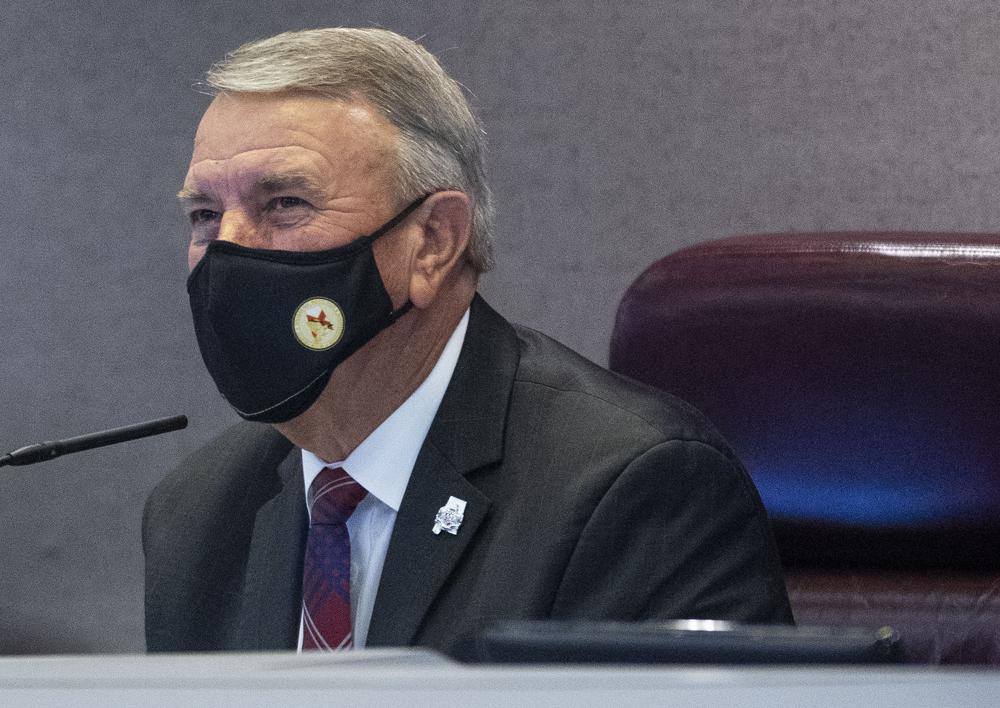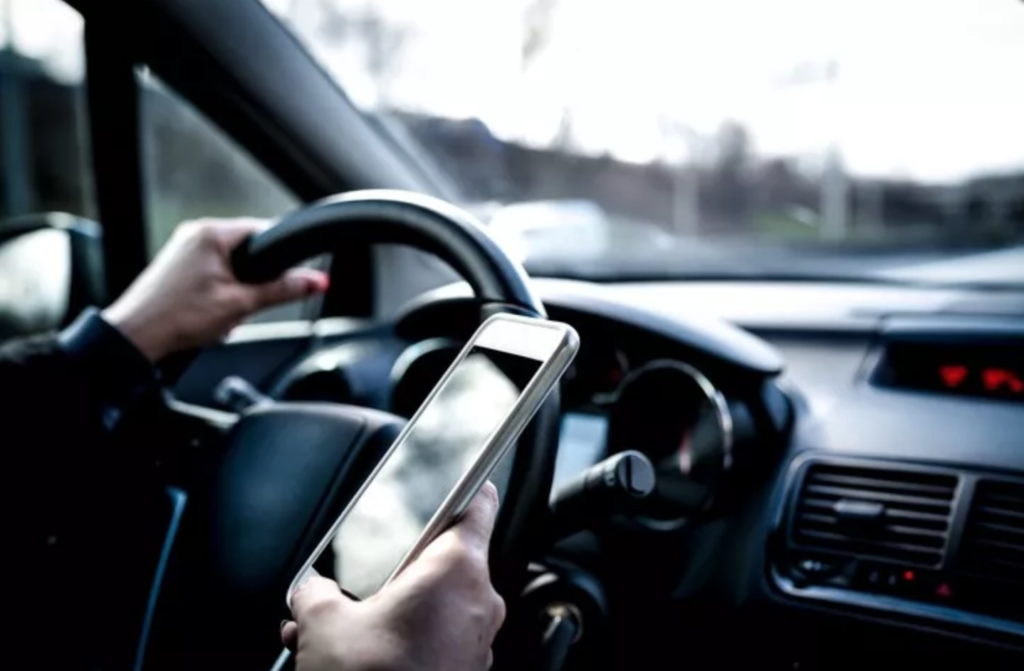Gambling bill dies as Alabama legislative session ends

Alabama lawmakers ended the 2021 legislative session without a vote on a gambling bill, and Gov. Kay Ivey indicated she will only call a special session on the issue if lawmakers can reach an agreement — something they have been unable to do for decades. The session wound down Monday night without a House vote on the Senate-passed lottery and casino bill. House Speaker Mac McCutcheon said House leaders opted not to bring the bill up for debate on the busy final legislative day after negotiations fell apart earlier this month. “I’m quite disappointed,” said Republican Sen. Jim McClendon, who sponsored the bill. He said the Senate worked hard to get a compromise, only to see the bill fall apart in the House. “It was a lot of work, but so much for that this session,” McClendon said. Alabamians last voted on the issue of gambling in 1999 when voters rejected then-Gov. Don Siegelman’s proposed lottery to fund education. Over the next two decades, lawmakers made multiple attempts to pass a gambling bill but the efforts failed amid battles and turf wars over casino gambling. A spokeswoman for Ivey said the governor has no plans to call a special session and would only consider it if lawmakers reached an agreement. “As she has said, we would need a plan and an agreement on that plan for her to consider that,” Ivey spokeswoman Gina Maiola said. Lawmakers hit sticking points on the number of casinos and language specifying how revenue would be used. The Senate bill would have allowed nine casinos — including sites owned by the Poarch Band of Creek Indians but other sites, that currently have electronic bingo games, had lobbied to be included, saying shutting their facilities down would cost jobs in poor counties. “You can’t just talk about a lottery without all of these other people getting into the discussion,” McCutcheon said. Democrats had sought language in the legislation that gambling revenue would be used for Medicaid expansion. “That has been our priority for the last 10 years,” House Minority Leather Anthony Daniels said. Democrats said there is a misperception across the state about who would benefit from Medicaid expansion, noting that most people who qualify would be the working poor and white. “Expanding Medicaid is to help small businesses that can’t afford to offer health insurance to their employees. It’s the working poor, the people working two or three jobs. Those are the people that will qualify,” Daniels said. Senate Majority Leader Clay Scofield said he believed Senate Republicans would oppose such language because of cost. “I think the Senate Republicans would have a problem with that,” Scofield said. McCutcheon said he did not know if there would be a special session on gambling. “It depends on whether we can get all the differences worked out,” he said. Alabama lawmakers will return to Montgomery for at least one special session in order to draw new congressional and legislative districts. McCutcheon said there is also the possibility of a special session on prison construction. Ivey has proposed to lease prisons, but the plan has hit setbacks with the withdrawal of some finance companies. Some lawmakers have suggested approving a bond issue to build the prisons so the state will own them. Republished with the permission of the Associated Press.
Senate approves casino and lottery legislation

The Alabama Senate on Tuesday night approved sweeping lottery and casino legislation as lawmakers struck a compromise after years of stalemates on the issue of gambling. Senators voted 23-9 for the proposed constitutional amendment that would establish a state lottery as well as allow nine casino sites in the state. The bill now moves to the Alabama House of Representatives. If approved by lawmakers in both chambers, the proposal would then go before voters. “We have done a monumental job in overcoming something that has been haunting this body for as long as I’ve been here,” Republican Sen. Jim McClendon, the sponsor of the bill, said after the vote. McClendon emphasized Alabama voters will have the final say on the matter. “What we are really okaying is the right for our constituents to come to the voting booth and decide if they like this or not,” McClendon said. If approved he said people “don’t have to drive to Georgia to buy a dadgum lottery ticket.” The bill is similar to a proposal that failed by two votes earlier this session but includes new provisions such as putting the casino licenses up for bid. Casino and sports betting sites would be located in Jefferson County, Mobile County, Macon County, Greene County, Houston County, and either Jackson or DeKalb counties as well at the three sites owned by the Poarch Band of Creek Indians. The casino licenses would be put out for bid, but the existing dog tracks and electronic bingo operations, such as Greenetrack and VictoryLand dog tracks, would be given an advantage in trying to win the bid. The existing operators will be given the opportunity to come in and make a final bid to exceed the highest bidder to win the license in their respective county. The Poarch Creeks will have the right for the final bid for the north Alabama site in either Jackson or DeKalb counties. McClendon said the state would get the benefit of a “high bid” but the existing sites “get a chance to stay in the game… and keep the job for their employees and keep their operations going.” Lawmakers also approved several pieces of enabling legislation. Senate President Pro Tem Greg Reed said having those details locked down helped pick up the additional votes. Lottery proceeds would be used for education purposes, including a college scholarship program. The state would place a 20% tax on net casino and sports betting revenue. The first $750 million of gaming revenue would be put toward broadband infrastructure in the state. Alabama is one of five states without a state lottery. Alabama voters in 1999 rejected then-Gov. Don Siegelman’s proposed state lottery, but lawmakers in both parties say they believe voters are now more welcoming to the idea. The approval came after two other gambling bills stalled this session in the Senate and years of debate over the issue. Sen. Greg Albritton said lawmakers have tried to reach a compromise on the legislation. “The road and the path that we’ve had to get to this point of having this bill before us has been a difficult and tortuous one,” Albritton, R-Atmore said. Republished with the permission of the Associated Press.
Lottery vote could come this week in Alabama Legislature

Alabama senators could vote on a lottery bill this week as lawmakers try to get the issue of gambling — with or without casinos — before state voters for the first time since 1999. Republican Sen. Jim McClendon of Springville said he hopes to get a Senate vote on his bill that would authorize a lottery where tickets could be sold at stores, kiosks and through a phone app. The Senate Tourism Committee approved the bill last month, but it has yet to get a floor vote as negotiations continue over whether to include casinos. Earlier this session, a proposal to start a state lottery and up to 10 casinos failed by two votes in the Alabama Senate. “The lottery is not dead by any means,” McClendon said in a brief telephone interview. McClendon said his intention is “to take a vote on a straightforward lottery bill” that does not include casino gambling and see how much support that has. McClendon said he believes voters, at least in his district, are more interested in a lottery than casinos. “I sure have heard from many, many, many people that just want to be able to vote on a lottery,” McClendon said. Alabama is one of five states without a state lottery. McClendon’s bills would divide lottery revenue evenly between the state education and general budgets, but doesn’t earmark the money for any specific purpose. Any gambling proposal would have to be approved by three-fifths of lawmakers and a majority of state voters. Alabama voters in 1999 rejected then-Gov. Don Siegelman’s proposed state lottery, but lawmakers in both parties say they believe voters are now more welcoming to the idea. McClendon said Gov. Kay Ivey plans to meet with him and other lawmakers Tuesday. A spokeswoman for Ivey said, “Gov. Ivey is actively having conversations with the Legislature and others to determine our next steps.” “It is clear that the people of Alabama want the opportunity to vote on the issue of gaming one way or the other, and Gov. Ivey has committed to them that she is ready to dig her heels in and work with the Legislature to get that accomplished,” Ivey spokeswoman Gina Maiola said. Republished with the permission of the Associated Press.
Committee advances lottery bill, keeps casino issue alive

An Alabama Senate committee on Wednesday advanced a lottery bill as lawmakers try to get the issue of gambling, — with or without casinos — before state voters for the first time since 1999. The Senate Tourism and Marketing Committee approved a lottery proposal sponsored by Republican Sen. Jim McClendon of Springville. However, Tourism Committee Chairman Del Marsh described the bill as a vehicle for negotiations and said lawmakers might revive the issue of casinos along with the lottery debate. The committee also approved other legislation that would set up a gaming commission to regulate casinos. “You have members who want to see a more comprehensive gaming package and those who do prefer a simple lottery. All we did today was keep both alive,” Marsh said. The committee action comes a week after Marsh’s proposal to authorize a state lottery and up to 10 casinos in the state failed by two votes in the Alabama Senate. McClendon’s bill would authorize a lottery where tickets could be sold at stores, kiosks and through a phone app. “My goal is to allow Alabamians to play whatever games they are traveling out of state to play,” McClendon said. “The people will have the opportunity to vote on and see if they would like a plain and simple lottery. It doesn’t address slot machines. It doesn’t address church bingo,” he said of his bill. The Tourism Committee delayed action on a bill by Sen. Garlan Gudger, a Republican from Cullman, that would authorize a lottery, although instant games would be limited to paper lottery tickets and could not be sold electronically. Any gambling proposal would have to be approved by three-fifths of lawmakers and a majority of state voters. Alabama voters in 1999 rejected then-Gov. Don Siegelman’s proposed state lottery, but lawmakers in both parties say they believe voters are now more welcoming to the idea. Alabama is one of five states without a state lottery. Marsh said he believes there is a mandate from voters to address the issue of gambling. “The people of Alabama want to vote on something dealing with gaming, whether it is a straight lottery, whether it’s a comprehensive package,” Marsh said. Alabama lawmakers will take a weeklong spring break next week. Marsh said lawmakers can take time to study the proposals and talk with constituents. Lottery bills have become entangled with the larger issue of gambling because of concerns over what the required changes to state law would mean for operators of electronic bingo machines, which can resemble slot machines. “At the end of the day, it’s more complicated than just a simple lottery,” House Speaker Mac McCutcheon said last week. Republished with the permission of the Associated Press.
Alabama Senate narrowly rejects lottery, casino bill

The Alabama Senate on Tuesday narrowly rejected a proposal to start a lottery and allow up to 10 casinos, ending the latest push to get the issue of gambling before voters for the first time since 1999. The proposal by Republican Sen. Del Marsh fell two votes short of the 21 needed to get the proposed constitutional amendment through the 35-member Alabama Senate. Senators voted 19-13 for the proposal to authorize a state lottery, seven casino locations, as well as a compact with the Poarch Band of Creek Indians for casino games at their three sites. “I’m not convinced this issue is a dead issue. I think it’s one we’ll have to address sooner or later,” Marsh, R-Anniston, said after his bill’s defeat. Alabama voters in 1999 voted down then-Gov. Don Siegelman’s proposed state lottery. Marsh said polling shows that Alabamians want to vote on the idea again. “It was the people who were going to make this decision … I’m just really a bit surprised that we didn’t let them do it,” Marsh said. Alabama Gov. Kay Ivey, who had supported getting the issue before voters, said she is willing to continue working on the issue if lawmakers do. “Today’s vote by the Alabama Senate confirms more work must be done because this issue is too important to not get it right. No doubt gambling is complex and challenging, but I remain committed to giving the people of Alabama the final say,” Ivey said in a statement. Over the past two decades, gambling legislation in Alabama has failed under a fatal mix of conservative opposition to gambling and a turf war over which entities could have electronic gambling machines or casino games. At least one senator is trying to resurrect a lottery debate this session Republican Sen. Jim McClendon, who voted for Marsh’s plan, introduced a lottery bill moments after the defeat of Marsh’s legislation on Tuesday. Alabama is one of five states without a state lottery. “People in my district want a dadgum lottery,” McClendon said. He said he expected the bill to be in committee in about a week. Previous lottery bills have failed after getting engulfed in the larger issue of gambling, and Marsh said that’s why he believes it will take a comprehensive bill to win approval. In the days and weeks before the debate, Marsh had expressed confidence that he had the 21 votes needed. However, he said he saw support chip away. He said one senator faced “peer pressure” to oppose gambling as a revenue source. The 13 no votes were all from Republicans. Some Republicans had expressed discomfort with the idea of allowing casinos in the state. “Lottery, I hear that a lot. I hear that a lot that people want to vote on a lottery yesterday. I’m receiving a tremendous amount of emails and phone calls opposed to casinos,” Senate Majority Leader Clay Scofield, R-Guntersville, said last week. Scofield voted against the bill. Marsh’s original bill proposed establishing a state lottery and five casinos — one at four existing dog tracks plus a fifth site in north Alabama that would be run by the Poarch Band of Creek Indians. It also authorized a compact with the Poarch Band for casino games at their three existing sites that currently have electronic bingo machines. Lawmakers on Tuesday added two additional sites to the bill after sites in Lowndes and Houston counties asked to be included. Marsh put Houston County in his substitute bill and an amendment was approved to include Lowndes. Marsh proposed to use lottery revenue for college scholarships and other education needs. Casino revenue would be used to help expand broadband access in the state as well as to fund rural health services. The Legislative Services Agency estimated the lottery would generate $194-$279 million annually for college scholarships awarded on a mix of need, merit, and workforce needs in the state. The agency estimated the casinos would generate $260-$393 million annually from the 20% tax on gaming revenues. Republished with the permission of the Associated Press.
Parker Snider: Alabama governor and voters have little input into public health system

Alabama legislators are taking a look at how their branch has set up our state’s public health system. Currently, Alabama is the only state in the nation where the top health organization is not led by someone appointed by the governor or by a board that is appointed by the governor. This would be fine, perhaps even good, if in fact the State Board of Health was elected by a vote of the people. The problem is, however, that this is not how we decide who is on the State Board of Health. In fact, “we”–the people of Alabama–don’t really decide much about the state’s public health system at all. So if the people don’t have much authority, either by electing the board outright or by electing the governor who chooses the board, who’s in charge here? According to the website of the Alabama Department of Public Health (which is synonymous for the State Board of Health), Alabama law designates “the State Board of Health as an advisory board to the state in all medical matters, matters of sanitation, and public health.” Pretty standard. The next line, however, is where we start to see a problem. “The Medical Association, which meets annually, is the State Board of Health.” This “Medical Association” is none other than the Medical Association of the State of Alabama (MASA), the association of the state’s physicians. MASA operates just like any other professional association does, it has its own leadership, its own practices, and its own decision-making bodies–all of which are determined not by the governor or by the people of Alabama, but by the medical practitioners who populate the group’s membership rolls. The Medical Association is also a registered principle (an organization that hires lobbyists) and has, as of March, six registered lobbyists. In fact, advocacy is, according to their website, the “Medical Association’s primary focus.” So what business does an advocacy group have being the State Board of Health? Here’s a healthy reminder that it’s not “part of” or “an advisory board to” the State Board of Health. It is the State Board of Health. Back in another century, the Alabama legislature decided that they didn’t want to create a whole new government agency (perhaps a good intention) to be in charge of public health. The doctors, they thought, should be in charge! And who would say no to that? The medical field, as it should be, is well-respected and given a great amount of deference. They know how to stop diseases, so let’s task them with doing just that. That idea would be all fine and dandy if the State Board of Health were simply to give recommendations to the governor on what she should do. The Code of Alabama makes it clear that this, however, is not the Board’s only role. Instead, the State Board of Health is to adopt “rules and regulations [that are in accordance with Alabama law which] shall have the force and effect of law.” Those health departments in Jefferson and Mobile counties that you heard about in the news early in the pandemic? They’re a local version of this same dynamic. Each county’s board of health, just like MASA is the State Board of Health, is the board of censors of the local county medical society. What about the State Health Officer? Maybe he’s chosen by the governor or elected? Not quite. The State Health Officer is elected by the State Committee on Public Health. Members of the State Committee on Public Health are–you guessed it–selected by the State Board of Health which, we’ve established, is the medical association. How about the county health officers? Again we see a similar dynamic. Here, the county boards, i.e. the county medical associations, appoint the health officer. One caveat here – the president of the county commission is a member of the county board. So there is some participation of the people in this appointment, albeit minor and ineffective at overpowering the decisions of the non-elected members. The truth is that you can’t blame the medical association nor the state or local county health officers for the way this system is set up. They’re simply operating under a paradigm they’ve been given. That doesn’t mean the system shouldn’t be changed though. With any human system of authority, checks and balances are needed to prevent tyranny. And, to be fair, there are some checks (the fact that the legislature can change this system at any time, for example), but they do nothing to address the problem of a private association being given the power of the state. The teachers union, for example, is not the Department of Education (and it shouldn’t be). Why does our public health system, which has the power to quarantine individuals to their homes, get to skirt democracy and enjoy its own kingdom? No other state in the union operates in this way. Even California’s Secretary of Health and Human Services is appointed and has to get approved by the State Senate. Their system is more democratic and more conservative than ours. Thankfully, there is a bill by Senator Jim McClendon with 17 co-sponsors moving through the State House that would reconstitute the Alabama Department of Health into an agency led by a cabinet official appointed directly by the governor instead of a private group. The bill, which would take control away from the Medical Association and give it to a popularly elected official, has passed the Senate Health Committee and moves now to the full Senate. This reform, with an additional provision to require the Senate to confirm the nominee (this year of executive action has shown the need for legislative approval), needs to become law. The Alabama legislature should prioritize it and debate whether the current system really makes sense in a state that’s all about self-governance and defending our rights. Because, in the end, we can’t let California be more conservative than Alabama, can we? Parker Snider is Director of Policy Analysis for the Alabama Policy Insitute.
Bill would replace state health officer with appointed post

An Alabama Senate committee on Wednesday advanced a bill that would let the governor pick the state’s top public health official. The Senate Health Committee voted 8-3 to advance the bill by Sen. Jim McClendon to the Senate floor. McClendon, an optometrist, said the change would make the position more accountable to elected leaders. But two other doctors on the committee argued it is wrong to interject politics into public health decisions. The state health officer, a position currently held by Dr. Scott Harris, is selected by the state public health committee which consists of members appointed by the Medical Association of the State of Alabama. The bill does away with the position of state health officer and creates the cabinet post of secretary of health who would be appointed by the governor. The secretary would then appoint a chief medical officer. “We now have a private club that names the members of the Board of Health and then those members instead select the state health officer. And that state health officer has no accountability back to the executive branch or the legislative branch. His only allegiance is back to this private club, the Medical Association,” McClendon said. McClendon said the bill was not about Harris and his handling of the COVID-29 pandemic, but debate on the bill comes at a time where there has been pushback against business closures and restrictions to combat the spread of the deadly virus. Two doctors on the Senate committee said the change would wrongly interject politics into health decisions. “I don’t want him answering to the governor. I want him answering to the patients in the state. …. We are going to make it a political position and not a free thinker,” Sen. Tim Melson. Republican Sen. Larry Stutts said it was a step in the wrong direction “to have a political appointment take that position.” Republished with the permission of the Associated Press.
Thousands flocking to virus vaccination sites across Alabama

Thousands of people showed up at sites from the coast to the Tennessee Valley as Alabama began vaccinating senior citizens for the coronavirus that causes COVID-19. People spent the night in cars waiting for shots in Baldwin County, where health workers began immunizing people early Tuesday. County health workers in Huntsville vaccinated 500 people on Monday although only 300 people had appointments. Other sites opened in cities ranging in size from Birmingham to Rainsville. The state is offering vaccines to people 75 and older after limiting the initial doses to health workers. Alabama is among the Southern states trailing the nation in the rate of vaccinations. In Limestone County, Pat White showed up to get her first of two doses of the Moderna vaccine Monday. She said she misses going to church and has done little other than buy groceries to protect against catching the virus. “We’ve lost many friends to COVID, and we’re older, so that made me think it was probably the right thing to do,” White told WAAY-TV. Alabama Department of Public Health statistics show about 150,000 have received shots statewide, but the number does not include those who were immunized most recently. More than 600,000 people are currently eligible for vaccinations in Alabama, including 325,000 health care workers and 350,000 people who are 75 or older. The state has so far received 446,000 doses, according to state numbers. The University of Alabama at Birmingham Hospital has been notifying patients, who are 75 and older, to have them come to get vaccinated. “At the vaccine site, it’s not uncommon for people just to break down in tears when they receive their vaccine. People are just so tremendously relieved to finally have received the vaccine and have some hope,” Dr. Sarah Nafziger, vice president of Clinical Support Services at UAB Medicine, said. More than 6,100 people have died of COVID-19 in Alabama, and more than 424,000 people have tested positive for the new coronavirus. Over the past two weeks, the rolling average number of daily new cases has decreased by 881, a decline of almost 24%, according to researchers at Johns Hopkins University. The virus causes only mild or moderate symptoms in most people, but it is particularly dangerous for the elderly and people with other, serious health problems. Nafziger said the delivery of the vaccinations is also providing a boost to health care workers who spent much of 2020 battling the pandemic. “We’ve been in a really rough place, especially in health care. For the last year, it’s been a tremendous burden. We’re exhausted. But just finally having hope has been a tremendous boost for all of us and I hope it is for the community as well,” Nafziger said. The Alabama Department of Public Health last week disputed rankings that put Alabama last in vaccination delivery and said that was because some entities had not reported given vaccinations. Four state senators wrote a letter Tuesday raising concern about the process and asking for updated numbers on vaccinations given. They expressed concern that incomplete reporting could threaten the flow of vaccine to the state if federal officials see the state has unused vaccine on the shelf. “While the supply pipeline is definitely an issue, our pipeline in Alabama has a kink,” Sens. Jim McClendon, Greg Albritton, Tom Whatley, and Randy Price wrote. The Alabama Department of Public Health responded in a statement disputing the assertion. The department said that the number of COVID-19 vaccine doses allocated to Alabama is based on our population, and “is not determined by how much vaccine is on hand in the state.” “The biggest obstacle to vaccination in Alabama is the limited supply of vaccine. Alabama currently has approximately 676,000 people in Alabama who qualify to receive a COVID-19 vaccine, but since our state is allocated only around 50,000 – 60,000 primary doses each week, the supply is not available to reach these numbers at this time,” the department said. Republished with the permission of the Associated Press.
Alabama lawmakers hope to make state hands-free for drivers

Alabama could become the 17th state to ban holding cell phones while driving. A bill that would ban holding a phone while driving has been pre-filed ahead of the 2019 session in the State House, and a similar bill will soon be filed in the State Senate. McCalla-Republican, State Rep. Allen Farley filed a bill last week. Springville-Republican, State Sen. Jim McClendon says he will sponsor a simliar bill in the Senate. Under existing law, a person is prohibited texting while driving, but they are allowed to hold a phone. Farley’s bill, HB6, put an end to that. Specifically, it would “prohibit a person from holding or otherwise using his or her body to support a wireless communication device or standalone electronic device while operating a motor vehicle.” It would also prohibit drivers from watching, recording, or capturing photographs or videos while operating a vehicle. “It’s not called a no texting law, or a no emailing law, it’s called a distracted driving law,” Farley told WHNT-19. The first violation will carry a $50 fine; $100 for the second; and $150 for third and subsequent offenses. Violations with convictions will also result in points on people’s license.
Legislators tackle opioids

Alabama is at Ground Zero in the opioid overdose crisis — last year the state had the highest national number of opioid prescriptions, more than the state’s total population, according to a report by insurance provider Blue Cross Blue Shield. Which is why State Senators — Lineville-Republican Gerald Dial, Springville-Republican Jim McClendon, and Scottsboro-Republican Steve Livingston — along with representatives from Kaleo Inc., will hold a press conference on Thursday at the State Capitol in Montgomery to announce phase two of a statewide effort to combat the opioid crisis in Alabama. There, state leaders and members of the media will be briefed on the success of phase one, and announce the beginning of a supplemental grant of EVZIO® devices. “Opioid abuse continues to be one of the most critical issues our society faces — over 49,000 Americans died last year from opioid overdoses,” Dial said. “This affects every family in Alabama, and we need law enforcement agencies, schools, churches, and private companies to come together to rid this scourge from our state.” In May, Kaleo Inc. donated of 872 boxes, which each hold two devices, to carry in state volunteer rescue vehicles. The device called Evzio auto-injects the life-saving drug naloxone and contains a voice recording that talks an untrained non-medical professional through administering it.
Final passage given to close loophole in state’s drunk driving law

Alabama lawmakers in the State House voted on Thursday to close a loophole in the state’s drunk driving law in hopes of reducing drunk driving deaths. The law received final passage from the house on the last day of session with a 78-14 vote for the bill. It now moves to the governor to be signed into law. SB1, sponsored by Springville-Republican state Sen. Jim McClendon would require persons charged with driving under the influence to use an ignition interlock device after their first offense. An ignition interlock is a device about the size of a cell phone that is wired into the ignition system of a vehicle. A convicted drunk driver must blow into the device in order to start their vehicle. If they have a measurable amount of alcohol in their system, it prevents the vehicle from starting. In 2014, Alabama became the 21st state to pass an all-offender ignition interlock law, expanding the use of ignition interlocks to all convicted drunk drivers, including first-time convicted drunk drivers with an illegal BAC of .08 or greater. However, loopholes exist that allow first-time offenders to enter into diversion agreements or choose not to go on the interlock. SB1 closes that loophole and incentivizes more people to choose an interlock over choosing to drive illegally on a suspended license. According to Mothers Against Drunk Driving (MADD) the Yellowhammer State reduced drunk driving fatalities by 6.8 percent from 2014 to 2015 thanks to use of the device.
Lawmakers unanimously vote to close loophole in state’s drunk driving law

Alabama lawmakers on Tuesday voted 98-0 to close a loophole in the state’s drunk driving law in hopes of reducing drunk driving deaths. SB1, sponsored by Springville-Republican state Sen. Jim McClendon would require persons charged with driving under the influence to use an ignition interlock device after their first offense. An ignition interlock is a device about the size of a cell phone that is wired into the ignition system of a vehicle. A convicted drunk driver must blow into the device in order to start their vehicle. If they have a measurable amount of alcohol in their system, it prevents the vehicle from starting. In 2014, Alabama became the 21st state to pass an all-offender ignition interlock law, expanding the use of ignition interlocks to all convicted drunk drivers, including first-time convicted drunk drivers with an illegal BAC of .08 or greater. However, loopholes exist that allow first-time offenders to enter into diversion agreements or choose not to go on the interlock. SB1 closes that loophole and incentivizes more people to choose an interlock over choosing to drive illegally on a suspended license. According to Mothers Against Drunk Driving (MADD) the Yellowhammer State reduced drunk driving fatalities by 6.8 percent from 2014 to 2015 thanks to use of the device.


